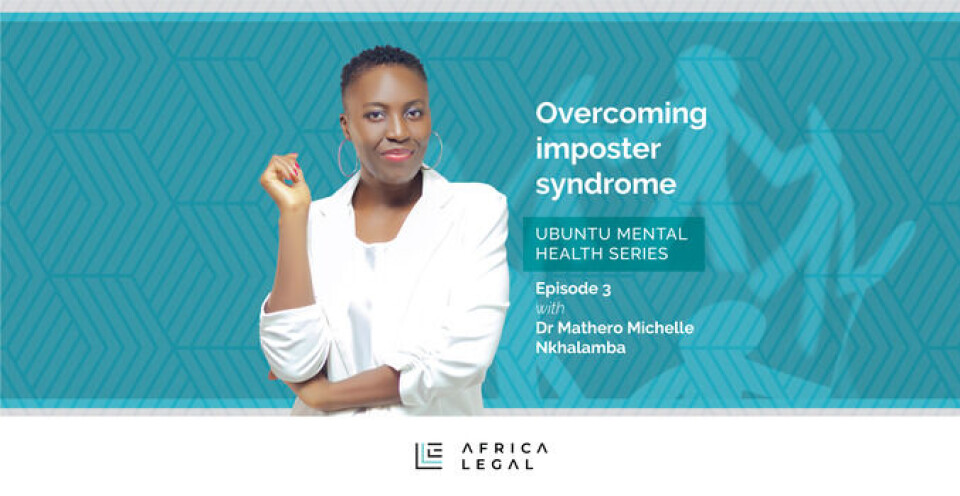The competitive nature of the legal profession and the constant need to demonstrate expertise exacerbate feelings of inadequacy, often making even the most skilful lawyer feel like an imposter.
Renowned chartered psychologist Dr Mathero Michelle Nkhalamba explains that imposter syndrome is a psychological phenomenon where people who are professional and capable doubt themselves and their accomplishments and have a persistent fear of being exposed as a fraud.
She has found that it presents itself commonly among people in professions that are hypercompetitive, highly skilled or societally well regarded.
“The unique thing about the legal profession is that it’s really high stakes. It’s hyper competitive, very visible and a transparent profession. It’s a career that can expose you to a lot of criticism or a lot of praise. That puts the pressure [on one] to feel, ‘Well, am I good enough or do I even belong in this space?’ and that increases your anxiety.”
The symptoms of imposter syndrome, says Nkhalamba, manifest through feelings of inadequacy. One of the ways to help manage and prevent this, is to normalise failure.
“It’s not only in your professional life; even in your personal life you have to be okay with failing sometimes and understanding that failure is not a major setback. You’re just trying to learn something new about yourself and improve.” Every failure – including those in the legal profession – is a learning process, she says.
“Shut down the voice and remind yourself that, ‘Yes, I have had failures, I’ve had setbacks, but I’ve also had achievements.’ Acknowledge them and accept positive feedback,” she added
Nkhalamba advises that having a mindset of continual learning helps to deal with this condition.
The insightful conversation Nkhalamba includes information on how employers can help break the imposter syndrome mindset in the workplace and why the host and the guest of this podcast should not be allowed on the golf course!
Click here to listen to the full podcast on Soundcloud, Spotify, Apple Podcasts and Amazon Music.
Click here to access additional audio platforms.
To join Africa Legal's mailing list please click here

